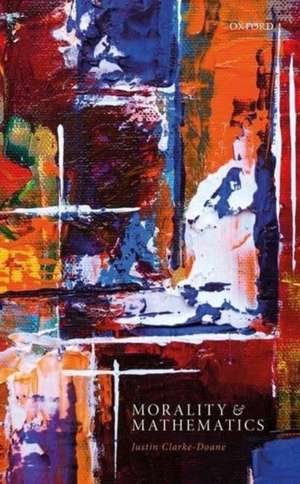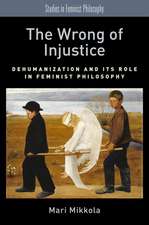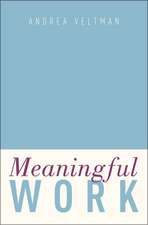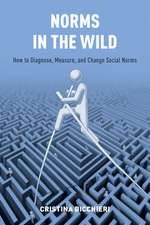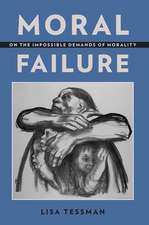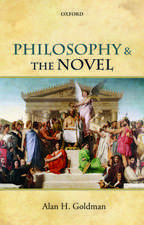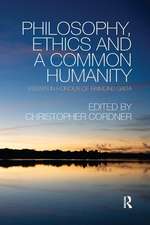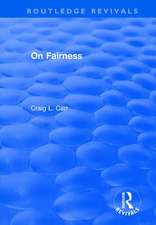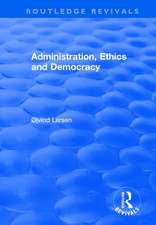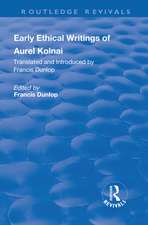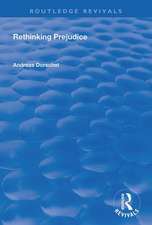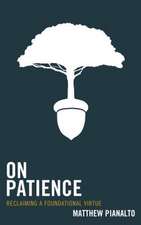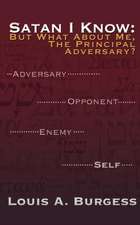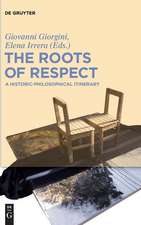Morality and Mathematics
Autor Justin Clarke-Doaneen Limba Engleză Paperback – 25 dec 2023
| Toate formatele și edițiile | Preț | Express |
|---|---|---|
| Paperback (1) | 132.71 lei 10-16 zile | +40.68 lei 5-11 zile |
| OUP OXFORD – 25 dec 2023 | 132.71 lei 10-16 zile | +40.68 lei 5-11 zile |
| Hardback (1) | 459.51 lei 10-16 zile | |
| OUP OXFORD – 25 mar 2020 | 459.51 lei 10-16 zile |
Preț: 132.71 lei
Preț vechi: 162.94 lei
-19% Nou
Puncte Express: 199
Preț estimativ în valută:
25.40€ • 26.35$ • 21.23£
25.40€ • 26.35$ • 21.23£
Carte disponibilă
Livrare economică 12-18 februarie
Livrare express 07-13 februarie pentru 50.67 lei
Preluare comenzi: 021 569.72.76
Specificații
ISBN-13: 9780198898863
ISBN-10: 019889886X
Pagini: 224
Dimensiuni: 135 x 215 x 12 mm
Greutate: 0.27 kg
Editura: OUP OXFORD
Colecția OUP Oxford
Locul publicării:Oxford, United Kingdom
ISBN-10: 019889886X
Pagini: 224
Dimensiuni: 135 x 215 x 12 mm
Greutate: 0.27 kg
Editura: OUP OXFORD
Colecția OUP Oxford
Locul publicării:Oxford, United Kingdom
Recenzii
Review from previous edition Morality and Mathematics is an outstanding achievement and will be a standard point of reference for future work on the topics of which it treats.
Clarke-Doane ... brings remarkable expertise and ... research to [this project]. The main argument [is] copiously defended in this lucid but highly technical treatise. ... Underlying [the argument] is the important distinction between realism and objectivity.
Clarke-Doane's book offers a coherent and plausible set of answers to the notorious epistemological questions provoked by morality, and to the analogous questions that are provoked by mathematics. It is striking for its creativity, its rigorous arguments, its many subtle but important distinctions, its unusual breadth of expertise (covering the philosophy of language, metaphysics, epistemology, philosophy of mathematics, and meta-ethics), and its rational control of a daunting battery of interacting considerations from these various branches of the subject. Exceptionally impressive philosophical talent and maturity are on display here. Needless to say, we probably haven't yet been given the final truth about these matters. But it's certain that anyone aiming to do better will have to grapple with Clarke-Doane's formidable arguments and conclusions.
Justin Clarke-Doane raises fascinating and important issues about evolutionary debunking arguments. He argues that insofar as our knowledge of the evolutionary origins of morality poses a challenge for moral realism, exactly similar difficulties will arise for mathematical realism.
Clarke-Doane's overarching metaphilosophical conclusion ... is ... that across a large range of philosophical debates ... the real philosophical questions are not metaphysical ... but practical, about which concepts to use. ... [W]e are left with a purely practical question of which framework to pick, which cannot itself be justified by appeal to more normativity. ...[P]erhaps a monist response can be afforded via an adaptation of Quine's response to Carnap. ... But whether or not this response ... can be made to fly, Clarke-Doane's achievement ... is substantial. ... [I]ncreased specialization makes serious engagement across subfields of philosophy a challenge. Morality and Mathematics rises to this challenge, and will serve as a springboard to further serious engagement across the subdisciplines
This excellent book ... compares morality and mathematics. Their similarities and differences are not what one might naively supposee, as the author demonstrates. The book is highly recommended to philosophers interested in both subjects, and to anyone who seeks a global understanding of how morality and mathematics fit into our belief system. ... The idea that practical questions alone resist deflation in the face of pluralist ... realism ... facilitated by the tension between realism and objectivity ... mak[es] ... for a rather striking metaphilosophical vision.
In this brilliantly original book, Justin Clarke-Doane ... has upended many long-held views on morality and mathematics. ... Accept it or reject it, it manifests Clarke-Doane's extraordinary combination of philosophical imagination and logical skill, and what I have discussed in this review is only a small sample of the philosophical gold to be found in his book.
Clarke-Doane ... brings remarkable expertise and ... research to [this project]. The main argument [is] copiously defended in this lucid but highly technical treatise. ... Underlying [the argument] is the important distinction between realism and objectivity.
Clarke-Doane's book offers a coherent and plausible set of answers to the notorious epistemological questions provoked by morality, and to the analogous questions that are provoked by mathematics. It is striking for its creativity, its rigorous arguments, its many subtle but important distinctions, its unusual breadth of expertise (covering the philosophy of language, metaphysics, epistemology, philosophy of mathematics, and meta-ethics), and its rational control of a daunting battery of interacting considerations from these various branches of the subject. Exceptionally impressive philosophical talent and maturity are on display here. Needless to say, we probably haven't yet been given the final truth about these matters. But it's certain that anyone aiming to do better will have to grapple with Clarke-Doane's formidable arguments and conclusions.
Justin Clarke-Doane raises fascinating and important issues about evolutionary debunking arguments. He argues that insofar as our knowledge of the evolutionary origins of morality poses a challenge for moral realism, exactly similar difficulties will arise for mathematical realism.
Clarke-Doane's overarching metaphilosophical conclusion ... is ... that across a large range of philosophical debates ... the real philosophical questions are not metaphysical ... but practical, about which concepts to use. ... [W]e are left with a purely practical question of which framework to pick, which cannot itself be justified by appeal to more normativity. ...[P]erhaps a monist response can be afforded via an adaptation of Quine's response to Carnap. ... But whether or not this response ... can be made to fly, Clarke-Doane's achievement ... is substantial. ... [I]ncreased specialization makes serious engagement across subfields of philosophy a challenge. Morality and Mathematics rises to this challenge, and will serve as a springboard to further serious engagement across the subdisciplines
This excellent book ... compares morality and mathematics. Their similarities and differences are not what one might naively supposee, as the author demonstrates. The book is highly recommended to philosophers interested in both subjects, and to anyone who seeks a global understanding of how morality and mathematics fit into our belief system. ... The idea that practical questions alone resist deflation in the face of pluralist ... realism ... facilitated by the tension between realism and objectivity ... mak[es] ... for a rather striking metaphilosophical vision.
In this brilliantly original book, Justin Clarke-Doane ... has upended many long-held views on morality and mathematics. ... Accept it or reject it, it manifests Clarke-Doane's extraordinary combination of philosophical imagination and logical skill, and what I have discussed in this review is only a small sample of the philosophical gold to be found in his book.
Notă biografică
Justin Clarke-Doane is Associate Professor of Philosophy at Columbia University. He is also an Honorary Research Fellow at the University of Birmingham and an Adjunct Research Associate at Monash University. He has previously been Visiting Scholar at the Institute for the History and Philosophy of Science and Technology (IHPST) at Pantheon-Sorbonne University (Paris 1). His work centers on metaphysical and epistemological problems surrounding apparently a priori domains, such as morality, modality, mathematics, and logic. He received his PhD in Philosophy from New York University in 2011 and obtained his BA in Philosophy and Mathematics from New College of Florida in 2005.
